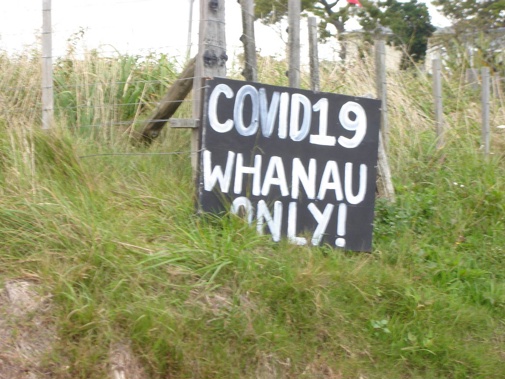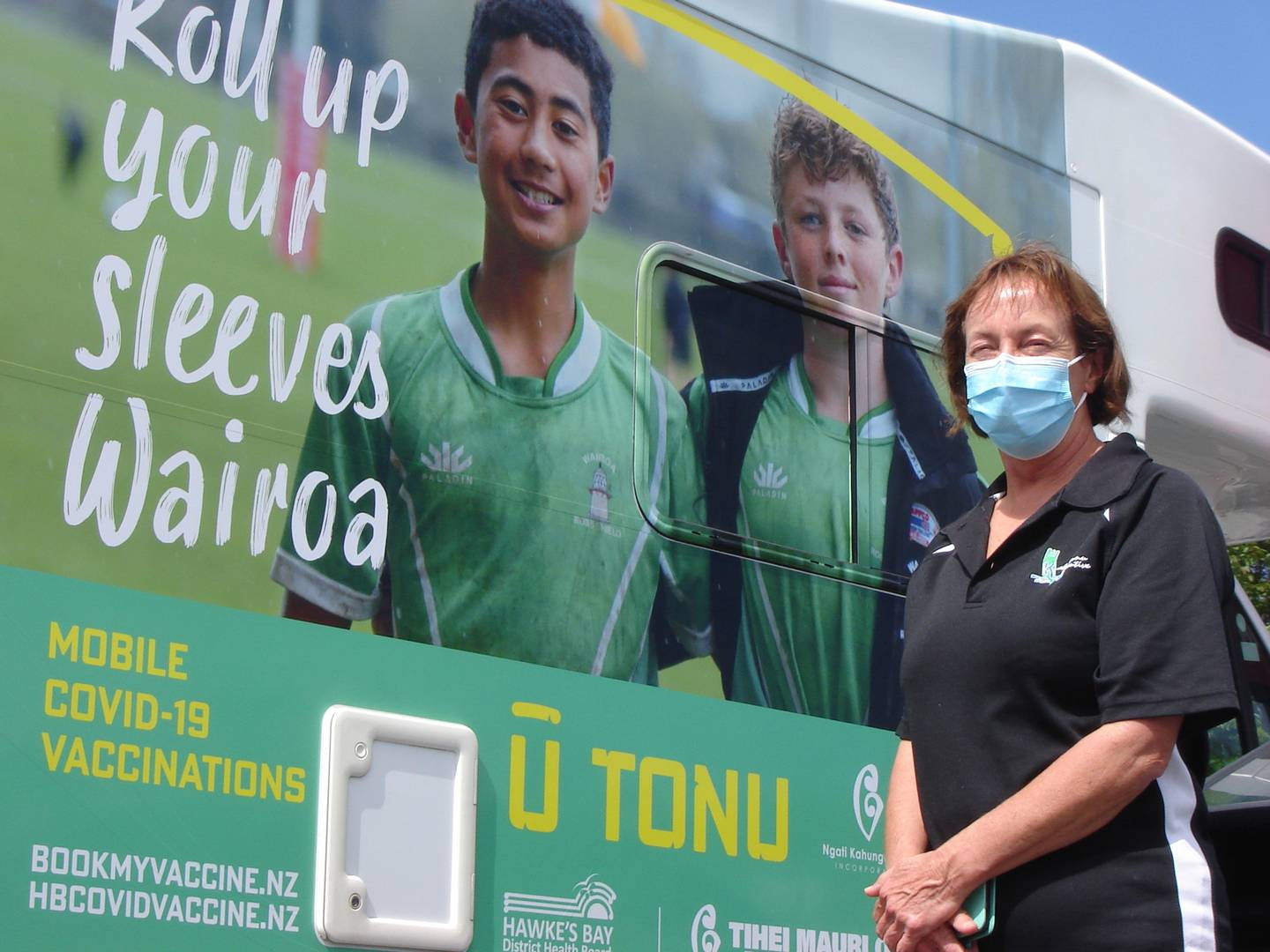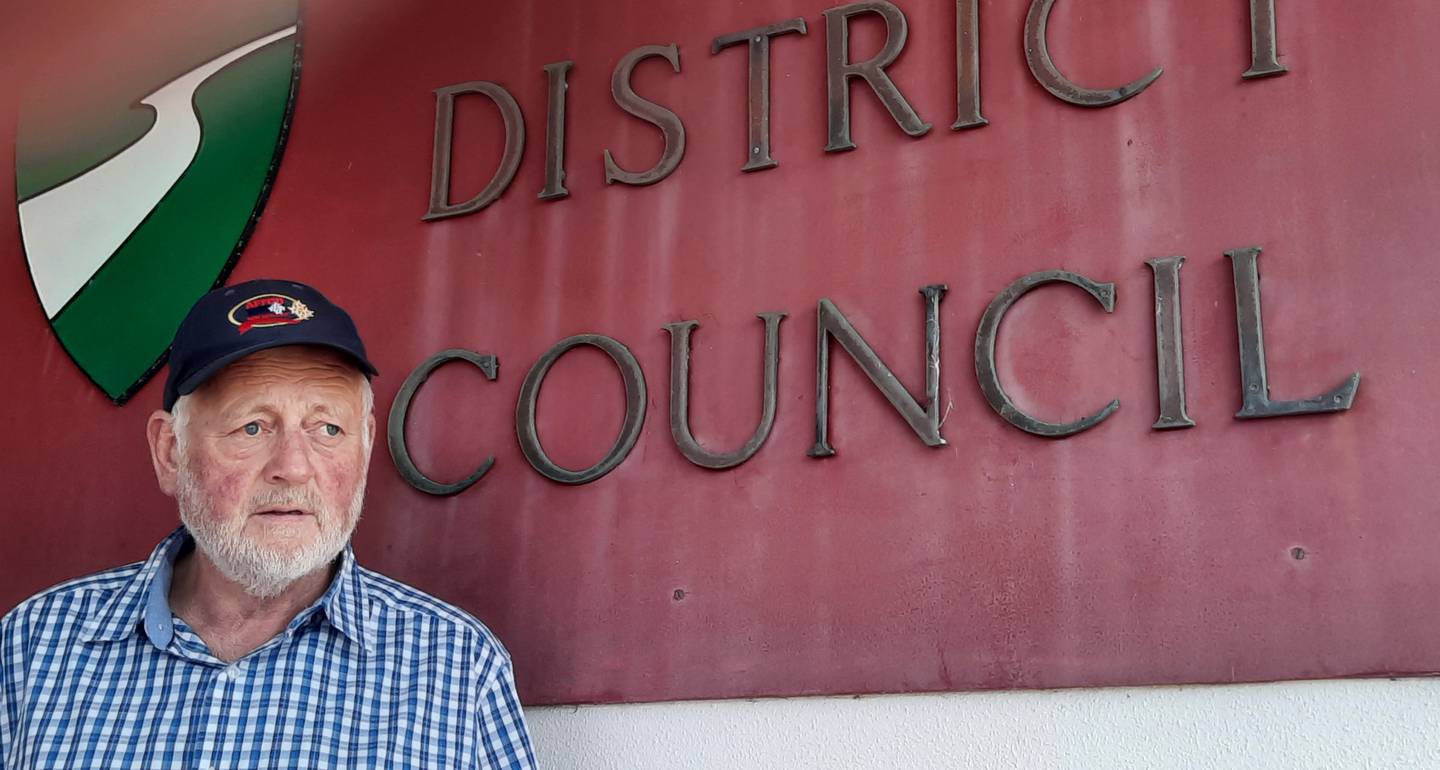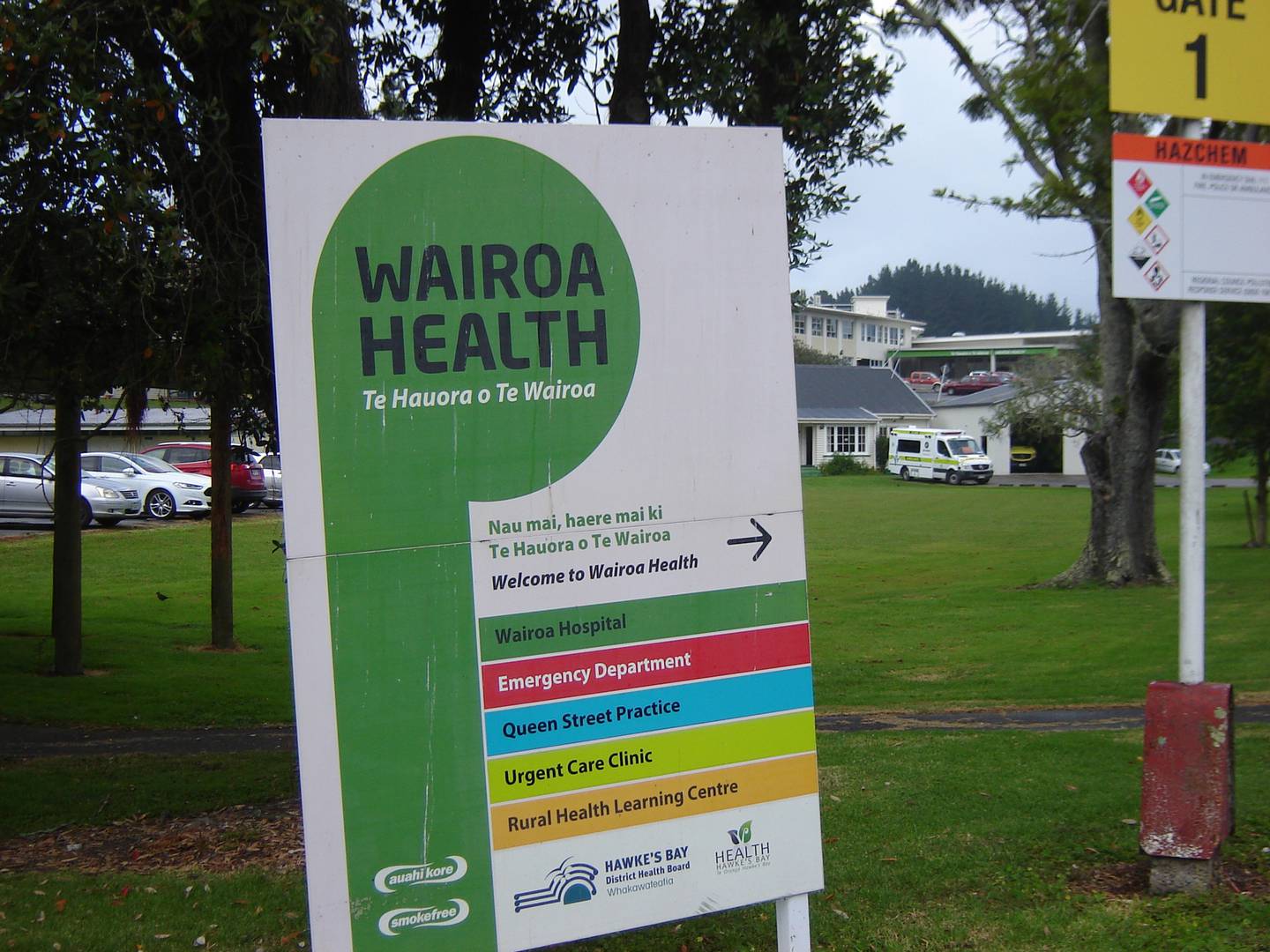
Modelling says at least 14 people are predicted to die of Covid-19 once the virus takes hold in the North Island town of Wairoa.
And local Wairoa officials fear the moment of widespread cases ripping through the town's population of more than 9000 is nearing after out of towners who did not know they were Covid-19 positive recently attended a large tangi there.
Medical experts have spoken of how rural communities are more vulnerable to Covid-19 than many people living in New Zealand's metropolitan areas.
For the people of the many communities in the Wairoa district, that vulnerability is quickly becoming a reality.
Julie Duffell, clinical lead of the Kahungunu Executive – the health, social and housing provider based in the town – said limited health resources in the area, a low vaccination rate and high at-risk populations of Māori, elderly with "long-term conditions", or youngsters unable to be vaccinated had created big concerns through area.
Prior to Omicron's arrival in the area – which currently has at least 77 confirmed cases – the Wairoa Pandemic plan had been prepared by Ngati Kahungunu Wairoa Taiwhenua Incorporated in collaboration with the Wairoa District Council, local iwi and health and social service organisations.
It makes for grim reading in the town which does not have infrastructure to care for seriously ill Covid-19 patients; estimating 14 unvaccinated people could die in a "major outbreak", and a further 140 could become "very sick".

Clinical lead of the Kahungunu Executive Julie Duffell said modelling that at least 14 unvaccinated locals might die if Covid-19 spreads rapidly was "realistic". Photo / Neil Reid
Duffell – speaking to the New Zealand Herald as the town braces for a feared cluster following a recent tangi – said she believed those numbers were "realistic".
"I am sure there will be some sad stories," she said of the potential deaths.
"There was a tangi and two positive people from out of town attended. So now we are starting to see that [spread] in our community.
"It was a huge tangi, a very well-loved nanny who died early and unexpectantly ... it was huge.
"Those cases [linked to the tangi] are just starting to show up now. And, of course, they have been running around for three or four days not aware that they are positive ... so all of their whanau will turn positive."

Wairoa District Council mayor Craig Little has once again urged residents in his region to get tested amid fears of a growing cluster. Photo / Neil Reid
Vaccination rates in the Wairoa district are 90 per cent first dose, and about 87 per cent second dose.
"It is low," Duffell said.
"But I am absolutely impressed we have got it to that. At the start I didn't think we honestly had much of a chance of getting it over 70 per cent."
Wairoa District Council mayor Craig Little said the projected death toll was stark, and would hit hard in an area like his where its isolation meant the population was so connected.
He added Wairoa had been "lucky" to have avoided widespread transmission in the two years that Covid-19 had been in New Zealand.
"It is a [concern] big-time," Little said. "We are just hanging on really ... we are just keeping our fingers crossed, and that is all we can do here.
"People just have to every day realise that Covid-19 is around. We can't be complacent."

There are just eight in-patient beds at Wairoa Hospital, and no intensive care capability or ventilators for seriously ill Covid-19 patients. Photo / Neil Reid
The limited health resources in the area amplified concerns, Little said.
Wairoa Hospital has just eight in-patient beds.
But it has no intensive care unit or ventilators meaning "we are in a bad space" if there was an urgent need. An ambulance ride to Hawke's Bay Hospital, in Hastings, would take two hours, or there was potential for patients to be airlifted by helicopter.
Other logistical issues in the town are just one GP clinic and one chemist.
Little urged those who hadn't been vaccinated to do so, saying most cases he knew personally had recovered "pretty quickly" if they were fully vaccinated.
He said the area was as best prepared as it could be.
But he stressed: "The vulnerable are the ones we have to look at; those that have heart problems, or might be recovering from other operations ... I would hate [for] any of those [to] fall through the cracks."
Duffell said a room was being set aside for Covid-19 treatment at Wairoa Hospital. But due to the facility's small capacity, patients needing hospital treatment probably faced being transferred to Hastings.
Local health providers – including iwi organisations and the local DHB – had been as pro-active as possible to spread the message in the community to get vaccinated against Covid-19, and also for residents to get tested immediately if they suffered any symptoms.

A sign outside a house on State Highway 2 near Wairoa warns potential visitors that Covid-19 patients are in home isolation. Photo / Neil Reid
The vaccination regime included taking mobile vans around the district.
"Most people are taking it seriously ... most people are really concerned about looking after their kaumatua and their mokopuna," Duffell said.
Dr Mataroria Lyndon, senior lecturer in medical education, University of Auckland, said a range of geographical barriers to accessing healthcare and other services impacted on rural communities' vulnerability.
That included things such as Covid-19 testing and vaccinations.
"If Covid-19 spread within rural communities there would be greater challenges in accessing care, providing healthcare, and pressure on local health services too," Lyndon said.

Wairoa health providers are telling locals to get vaccinated against Covid-19 and also for them to get tested immediately if they suffered any symptoms Photo / Neil Reid
Mobile vaccinations services to remote areas – like what is being done throughout Wairoa – was an important strategy "in addressing some of the barriers rural communities face".
Lyndon also warned of the flow-on effect for regional and rural hospitals dealing with Covid-19 cases, saying it "could also impact on capacity for managing other health conditions".
Fiona Doolan-Noble, senior research fellow in rural health, University of Otago, said the Covid-19 pandemic had "repeatedly exposed faultlines" within the health system – and inequalities in rural areas could potentially be another area which needed addressing.
Doolan-Noble said there hadn't been enough research done on how the full impacts the pandemic could have on rural New Zealand, but added: "Rural residents are more likely to be older and to have a chronic health condition exacerbating the effects of Covid-19."
Take your Radio, Podcasts and Music with you









